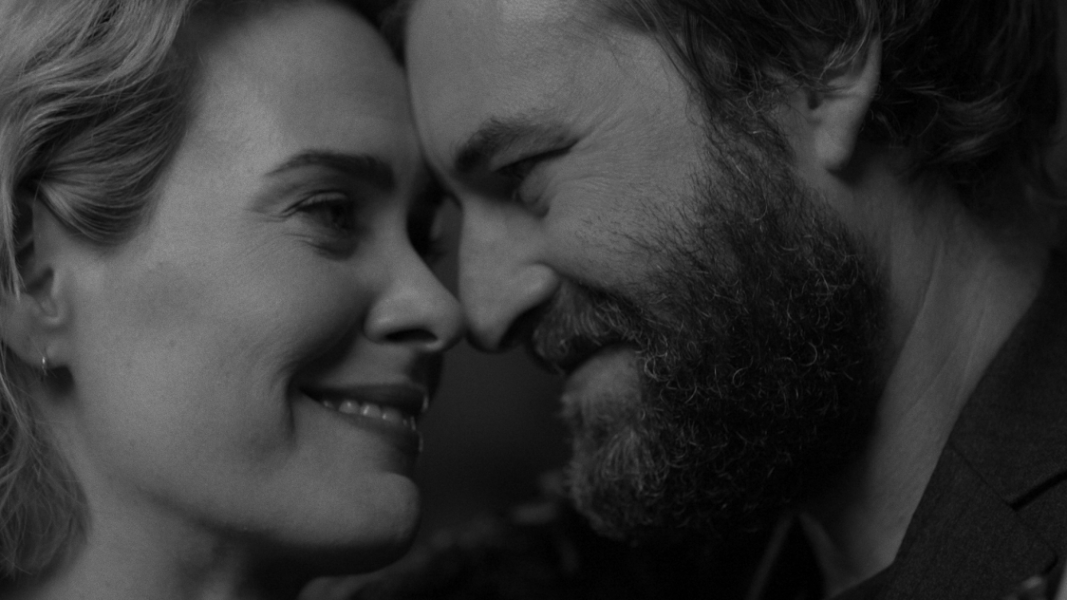

- Presented by
The Review/ Interview/
Mark Duplass Takes Over The Review To Kickstart Your Film Career
You've got $5, right? Then you can make your movie...
"Yeah, well, that’s just, like, your opinion, man."
-The Big Lebowski
I grew up in the suburbs of New Orleans. My parents were supportive of me and my brother Jay trying to make movies, but Jay and I were just two idiots in a cave banging our heads against the wall, trying to figure out what to do. Today, I feel like if I have anything to offer as a mentor, it might be: how do you get somewhere when you are coming from nowhere?
I gave an hour-long speech at SXSW a couple of years ago, really detailing, beat-by-beat, how to do it. But I can sum it up for you. It usually starts by making three-to-five dollar short films on the weekend with your friends where you’re just trying to figure out what you're good at. All I know how to do is start from nothing… make a $3 short, then make a $50 short, then make a $100 short, and then make a $1,000 feature film that kind of sucks and then make another $1,000 feature that's hopefully a little bit better and gets into a great festival.
You need to allow yourself to make mistakes and fuck up and build a tribe of people around you. And then, just keep making mistake after mistake — as cheaply as you can, so they don’t hurt too badly. At some point, you’ll accidentally land on something. For me and Jay, it was this little $3 short film that we shot in our kitchen called This Is John.
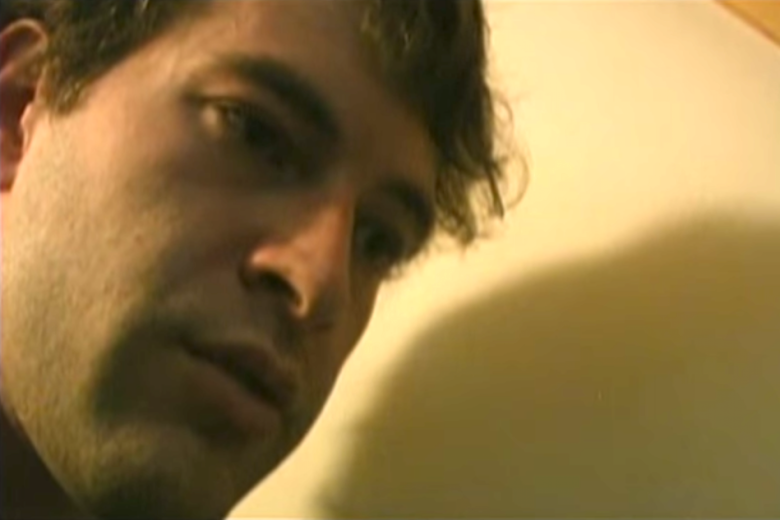
A Still from This is John
Jay and I never planned on being producers or mentors. We thought we would be fully absorbed in our own problems and in our own journey as filmmakers. But, quite frankly, we were some of the first filmmakers in our group of friends to make any money. So we would advise on our friend’s scripts and rough cuts and give them little bits of money to finish their films. Finally someone pointed out: “Oh you’re helping them cast their movies, you’re helping them get into festivals, you’re advising creatively, you’re providing funding - you’re a producer!” And we were like, “Oh yeah!”
I think most people who are getting into filmmaking feel like they have all of this magic inside of them. And maybe they don’t know how to get that magic out because everything they’re making sucks, or maybe they did make something that they’re proud of, but they don’t know what to do with it. Producing is very much hand-in-hand with mentoring. One of these things I’m doing now is the AXE Collective mentorship program. Along with fellow mentor John Legend, we’re helping filmmakers distill what they are good at.
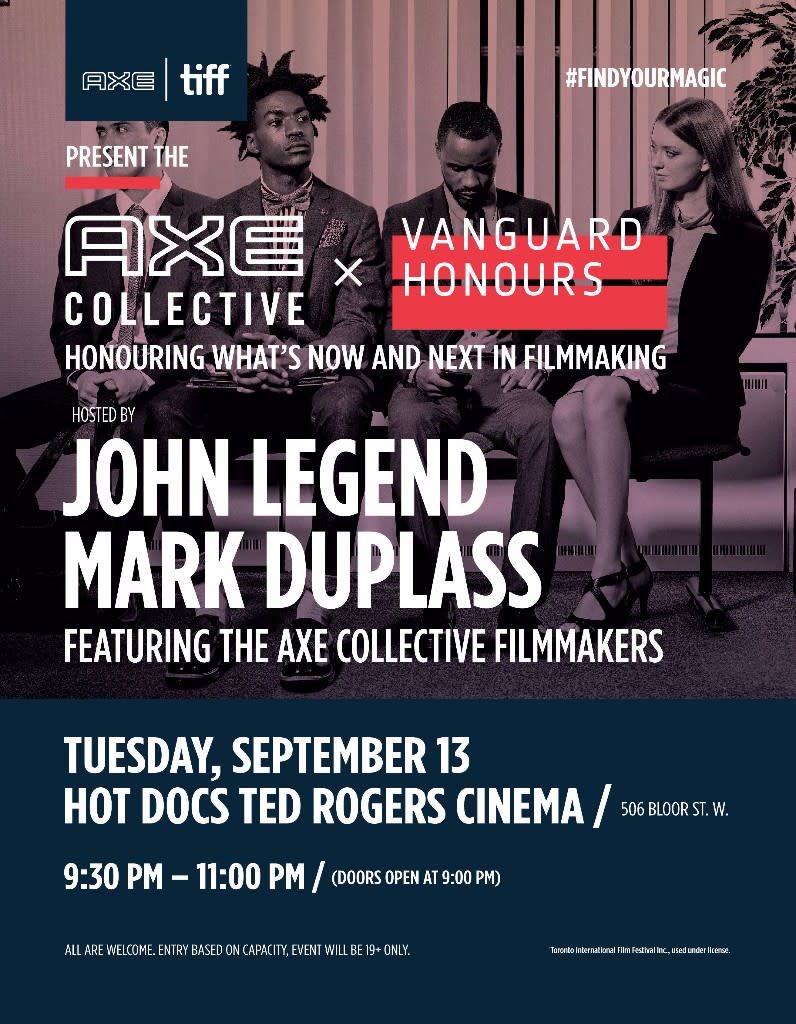
One of the most common things young filmmakers do - and it’s an easy mistake - is make films like the films they love, as opposed to making what they uniquely have to offer. Jay and I loved the Coen Brothers growing up and we tried to make Coen Brothers’ movies – we were terrible at it. Somewhere in those late-night conversations with your friends, you know, the ones you have at 2 AM that make you giggle uncontrollably or cry in a deep, strange way - that’s where your voice is.
As a young artist making stuff, you should be rejected a ton. I’ve met filmmakers who have came out of the box making stuff that was interesting right away. My friend Joe Swanberg at 22 was an interesting artist. I was not. It just takes time for most people.
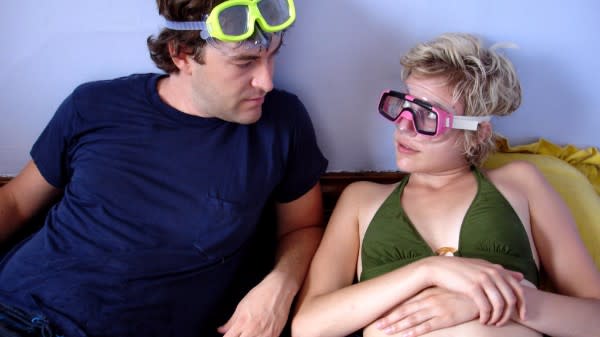
Hannah Takes the Stairs, directed by Joe Swanberg and Starring Greta Gerwig and me
I owe my career to film festivals. Because you can submit a tiny movie where no one knows who you are and all of a sudden, you have a world stage to show your work. We brought Your Sister’s Sister to TIFF in 2011. It was this tiny little movie made with barely any money. And not only did the movie get its launch, but so did so many careers.
I’m still friends with the people I met at my first film festival in 2003. You travel around this little circuit together - it’s almost like a summer camp - and you develop a support system. When my friends and I first started out making films, a bunch of us owned different pieces of equipment. We would mail them to each other to help us all make movies. Making movies is extremely difficult. Making an entertaining, interesting or unique film is almost impossible. So why wouldn’t you ask for help from the people around you? It just seems like an obvious way of operating for me.
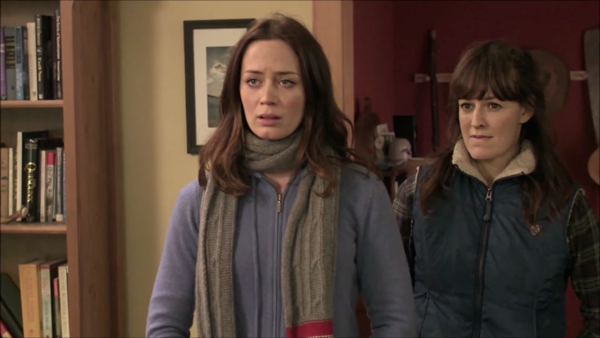
I am a nostalgic, melancholy person. My close friends and I feel that in a deep way. I wanted to write a story about the deep feeling that I've been experiencing lately, which is that I am not sure how I ended up where I am. I'm not sure how I feel about who I've become, and it's certainly different than who I thought I was going to be. When you run into people from your past who knew you when, particularly in high school, it can really dredge all of that up. And I don't care how successful or unsuccessful you are, no one can avoid that feeling.
I am extremely proud of my film Blue Jay playing at TIFF '16 (it premieres on Monday, September 12 at 6:15 pm at Ryerson Theatre, actually). It was born out of an impulse to see if I could make a movie almost out of nothing. I was friends with Sarah Paulson through my good friend Amanda Peet who was on my show Togetherness. I knew Sarah as this gorgeous, open, lovely human being, but a lot of the roles she plays are often a secondary character who may be more austere... I suppose I just hadn’t seen her play a beautiful, sweet, normal girl. I wanted to make a movie whose chief principle was melancholy. We shot the movie over the course of seven days and we had very little money to do it. And it was just a beautiful experience, a process of discovery. It made me feel like a kid again, trying to make a movie for the first time.
The director Alex Lehmann was one of the cameramen on The League. So we met each other in the land of fart and dick jokes, but quickly realized we had other sensibilities in common. He showed me his documentary that he was working on, Asperger's Are Us, and I fell in love with it and helped him produce and finish it. He’s a really great cinematographer, so I had this idea that I wanted whoever was shooting Blue Jay to be the director. It was not an intellectual process, it was a feeling process, and I wanted it to be instinctual. The movie, in some ways, almost works as a tone poem. That sounds really pretentious… sorry!
I don’t want to get into anything too spoilery with the film, but there was a scene that required a lot of me emotionally. And I feel like sometimes, if I have any limit as an actor, is really to be able to access that true, raw emotion at times, because I like keeping my life on the rails. Whether or not it’s any good, I feel like it’s one of the most raw places I’ve ever gone to as a performer. And I’m really proud that I got there.
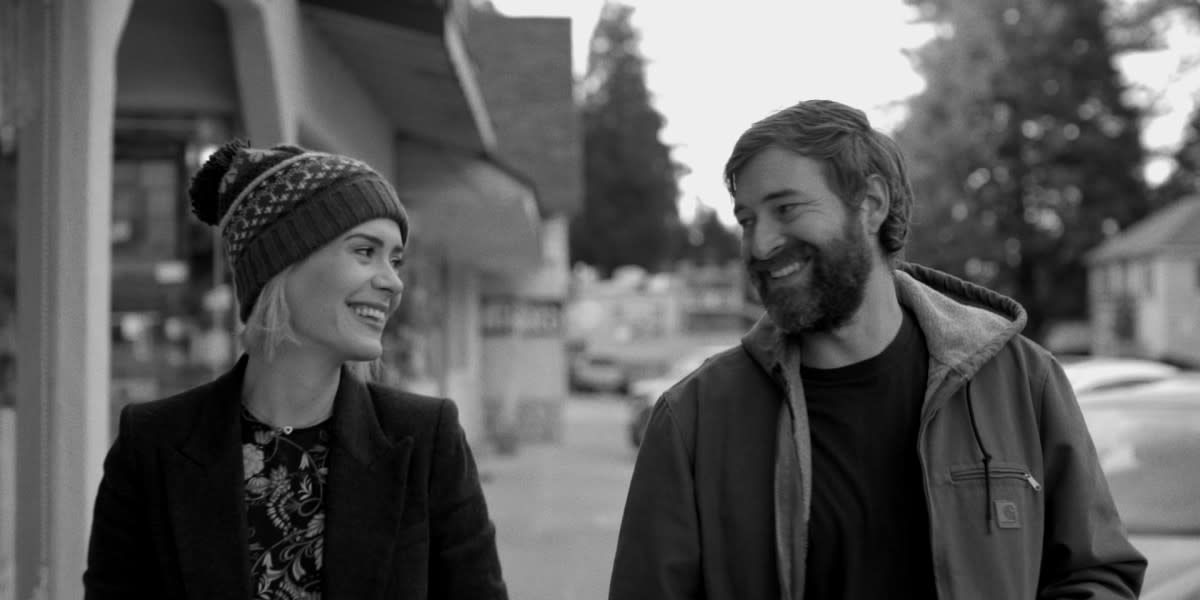
I really recommend to anyone who is capable of it to go to therapy as much and as often as possible. It’s something that has made me a more well-rounded and empathetic artist. It’s so important to learn about yourself and the way you operate and your feelings. Mentorship and therapy - two good things.
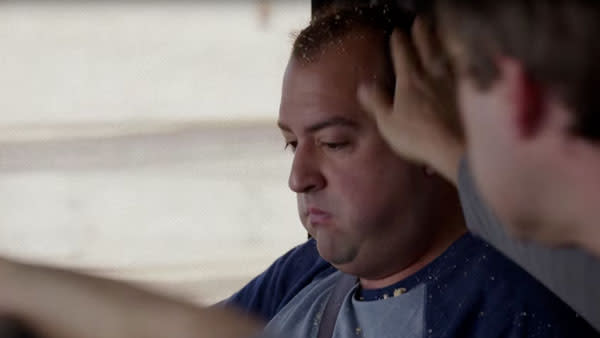
A moment from Season 1, Episode 1 of Togetherness
Everybody's got different ways of doing things. I was so fucking excited to see David Lowery go out and make a huge Disney movie. But I am carving out a corner of the sandbox that I can control and do exactly what I want. I never want to let someone's money get in the way of doing exactly what I want to do. And that’s what my HBO deal is about. I'm making television that’s at the low-budget level, with shows like Animal and our new show Room 104. I make my Netflix movies at a fraction of the rate normal people make independent films. A lot of independent filmmakers think: "God! If only I could have 20 million dollars to make my movie!" I'm thinking, I don't need that, man, just give me the bare minimum. As long as I have a place to live, I'm eating and my kids are going to school — I'm good.
Because I don’t know how to make Jurassic World. I would be the worst director for that kind of movie. I’ve got my little corner of the sandbox, nobody fucks with me, I get to do exactly what I want to do. I don't make them too expensive. None of my movies make a lot of money, but they make enough to sustain themselves. And that's just happy-making for me.
With the Canadian film industry, I love the concept of, "Oh my god, this is a place in North America that is actually somewhat supportive of the arts." Xavier Dolan is a really interesting filmmaker. I may be projecting but it seems like your young filmmakers are making good films and I wish we saw more of that in the States. So I’m excited to come out to TIFF, dig around and see what I find.
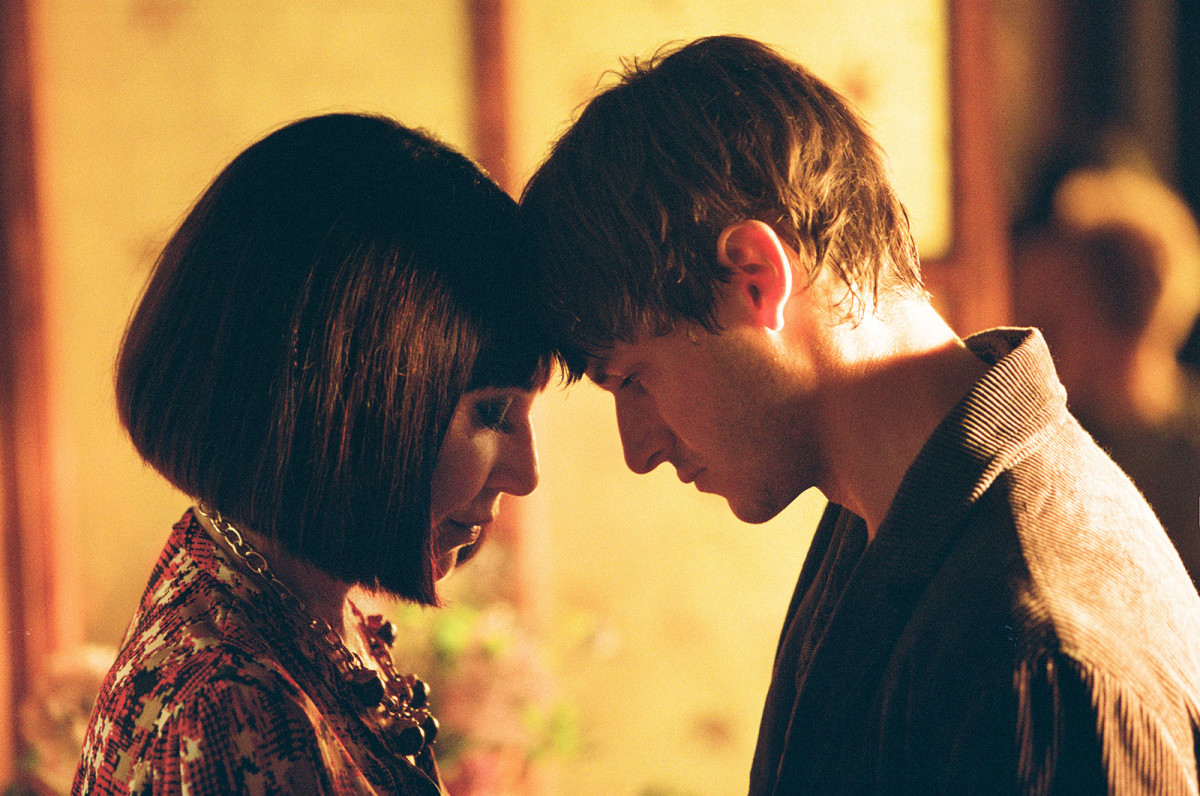
A still from Xavier Dolan's TIFF '16 selection It's Only the End of the World
As crazy as it sounds, I don’t watch a ton of movies for inspiration. I read books and I listen to music. I watch a lot of documentaries. Part of it is that I’m busy, but when I have time off - my initial instinct “music, a book, or a documentary” tends to be where I go.
My friend Julian Wass, who does many of my music scores for my projects, is my little music guru and he always sends me weird YouTube videos: “Here’s Rickie Lee Jones and the Blue Nile playing a song in 1989 on public TV.” I really like to read a lot of historical fiction, I like non-fiction, I’m reading a book called Dreamland about the history of opiate addiction and how pharmaceutical companies came to be. I read A Brief History of Seven Killings, which is all about Jamaica and the history of their politics and their gang systems and how oddly, Bob Marley played a role. As for documentaries, it’s anything from, “Oh, I want to watch the Weiner doc” to a full docu-series. I really like that series Last Chance U that’s on Netflix right now. I guess it’s that kind of thing where if you work in a bakery all day, maybe you don’t want to eat donuts when you get home. That doesn’t make sense ‘cause I always want to eat donuts. No matter what. But you get the idea.
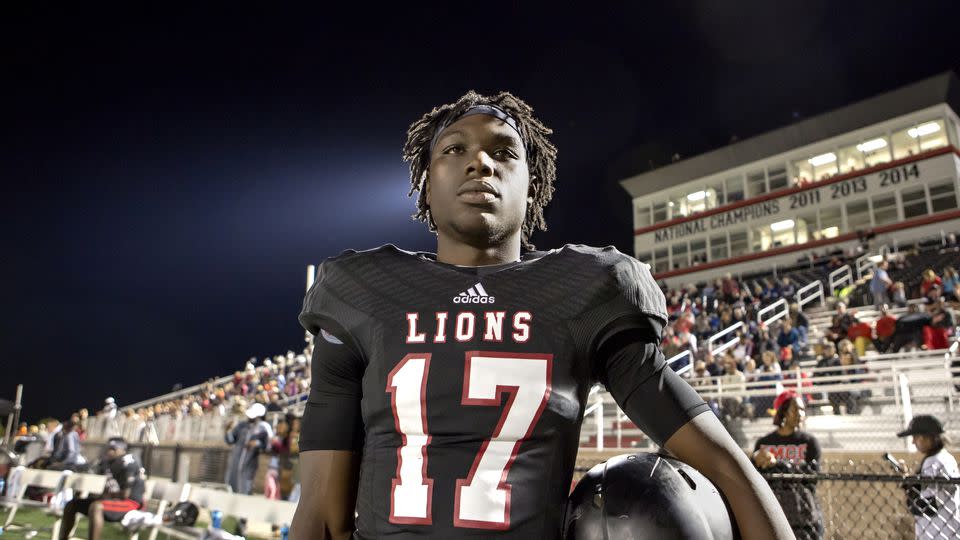
See Mark Duplass host the AXE Collective Vanguard Honours with John Legend at the Hot Docs Ted Rogers Theatre on September 13 at 9PM.